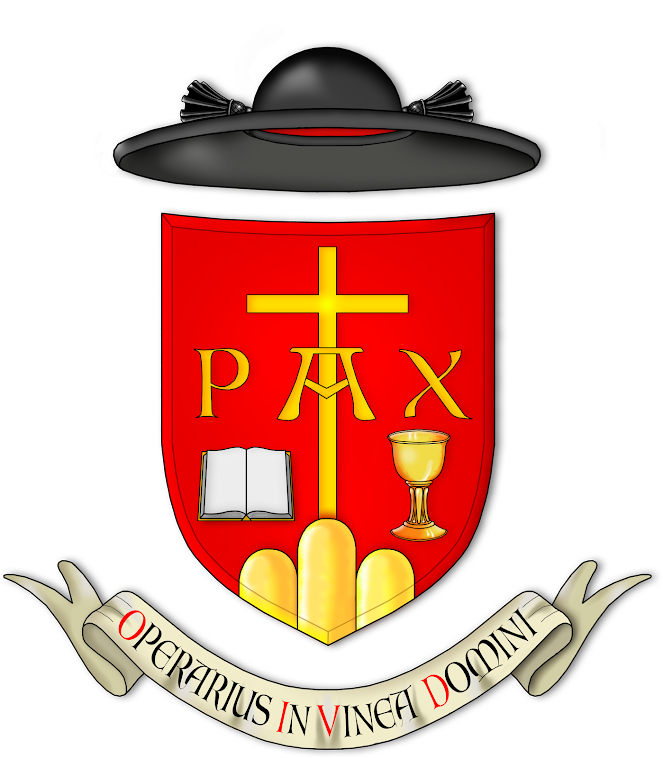I am finding also that I have an increased desire to pray more of the Divine Office whenever my schedule permits it. I regret that I cannot honestly say that I am praying at least five of the seven hours-the five which are required of priests-every day, but I now try to pray five of the prayers of the office every day. The "Big Five" are the Office of Readings (Matins), Morning Prayer (Lauds), Daytime Prayer Current (Sext), Evening Prayer (Vespers), and Night Prayer (Compline). The other two hours are Terce, called Midmorning Prayer in our modern tongue, and None, or Midafternoon Prayer.
The names of the three Daytime Hours tell us precisely when they are supposed to be prayed, Terce, or the third hour of the morning watch-9:00AM. Sext, the sixth hour-Noon. None, the ninth hour, also the hour Our Lord expired on the Cross-3:00pm. Our lives don't fit nearly as neatly into those little boxes in modern times-even some monastic communities do not pray the Hours on the strict timing that had become the Church's custom over the years (some, like the Cistercians, still do keep the Hours largely at the traditional times). As a result, the Church wants us now to pray Morning Prayer in the morning, Daytime Prayer during the breaks in our day, Evening Prayer in the evening, and Night Prayer at night before bed. The Office of Readings can be prayed at any time during the day that we can find the time, and the Office of Readings may begin the liturgical day and come before Morning Prayer if someone is so inclined. I often either like to combine the Office of Readings with Morning Prayer or with the Daytime Hour, depending on my schedule on a particular day. If I am up after midnight, I will sometimes pray the Office of Readings by itself.
If, by the Lord's grace, I make it to ordination, I, along with my Brother Aspirants will pledge to pray Morning and Evening Prayer every day. My position as a Benedictine Oblate already requires of me to pray Night Prayer. Yet, I have felt called recently to pray the Office of Readings and Daytime Prayer in addition to the Hours I had been praying. I find myself offering up each psalm or canticle or reading for some intention I might otherwise have forgotten in my human weakness. For a Brother Aspirant or wife who needs my prayers, for a friend who is ill, for those I know who need help that I cannot give beyond my prayers, for my vocation and for the guidance of the Holy Spirit in discernment, and the same for my fellow Aspirants, for my mentor, and spiritual director...name that need. The more time that I have found to pray, the more prayer intentions and needs I seem to be able to remember.
If I could stress anything to people throughout the Diocese, it is that they can and should be proud of the exceptional class of men who are in formation for the deaconate. I pray each day for these, my brothers, and I often think myself to be the least worthy of all to be among their number. This is the vigil of the Feast of Mary, the Mother of God, and I have resolved to commit my own vocation and the entire formation class to the Immaculate Heart of Mary.
Mary Immaculate, Mother of God and perfect Christian, you treasured the word of God, in faith you pondered it in your heart and acted on it in charity and service.
As we all move into the New Year, I would simply ask that readers remember not only me, but all of the Aspirants for the Deaconate in the Diocese of Knoxville and in the Hily Catholic Church throughout the world in your prayers.We know that as children of God and believing Christians, God's love is given to us, "...the love of God has been poured into our hearts by the Holy Spirit which has been given to us." Your heart as symbol of your love for God, for us, and for all creation, reminds us that "as long as we love one another God will Live in us And His Love will be complete in us."
















